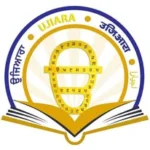Shaheed Udham Singh
Shaheed Udham Singh (born Sher Singh; 26 December 1899 – 31 July 1940) was a courageous Indian revolutionary associated with the Ghadar Party and the Hindustan Socialist Republican Association (HSRA). He is best remembered for the assassination of Michael O’Dwyer, the former Lieutenant Governor of Punjab, on 13 March 1940, in London. This act was a direct retaliation for the 1919 Jallianwala Bagh massacre in Amritsar, which left a deep impact on Singh’s life. After the assassination, he was arrested, tried for murder, and hanged on 31 July 1940.
While in custody, he adopted the name “Ram Mohammad Singh Azad”, symbolizing communal harmony and resistance to British colonialism.
Shaheed Udham Singh remains a towering figure in India’s freedom struggle and is honored with the title Shaheed-e-Azam Sardar Udham Singh (“Great Martyr”). In October 1995, the Mayawati government in Uttar Pradesh named the Udham Singh Nagar district in his memory.
Jallianwala Bagh Massacre and Revenge
On 13 March 1940, Michael O’Dwyer was addressing a meeting at Caxton Hall in London. Udham Singh, who had smuggled a revolver into the venue, shot him in full view of the audience. His action made international headlines. The Times of London referred to Singh as a “freedom fighter” and called the assassination an expression of the suppressed anger of colonized Indians. German radio famously commented, “Indians never forget their enemies. Like elephants, they strike back—even after twenty years.” While Nehru and Gandhi condemned the act, Subhas Chandra Bose praised it.
Arrest and Trial
After the shooting, Udham Singh surrendered calmly and confessed. He even asked police whether Zetland, another official present, had also been killed. Singh said Zetland, too, deserved to die. He was presented in court on 1 April 1940, and during the hearing on 4 June, when asked why he had committed the murder, Singh declared, “He was our enemy. He deserved it.” He was sentenced to death and hanged on 31 July 1940 in Pentonville Prison, London. His ashes were brought back to India in 1974 and cremated with full honors at his birthplace, Sunam, thanks to the efforts of Punjab CM Giani Zail Singh.
Revolutionary Ideology
Although best known for his revenge killing, Udham Singh was a committed revolutionary with deep ideological beliefs. He had close ties with Shaheed Bhagat Singh and was inspired by his ideals. In 1924, he became active in the Ghadar Party, promoting India’s freedom struggle abroad. He returned to India in 1927 under Bhagat Singh’s direction with arms and ammunition. He was arrested on 30 August 1927 for illegal possession of weapons and remained in jail until after Bhagat Singh’s execution in 1931.
Link to the Ghadar Party
During his time in the United States, Singh became deeply involved with the Ghadar Party. Upon arriving in Karachi in 1927, Ghadar literature was found on him, and he was fined. His name appears in the 1934 Ghadar Directory published by the British Government. He was sentenced to five years under the Arms Act. Records show that he used the alias Uday Singh and “U.S. Azad”. Even during his London trial, Ghadar Party members like Ajmer Singh of Stockton, California, actively supported his legal defense and fundraising.
Interestingly, Udham Singh also appeared in British films such as The Elephant Boy (1937) and The Four Feathers (1939), based on Rudyard Kipling’s Jungle Book. The Elephant Boy even won Best Director at the Venice Film Festival.
A Legacy of Sacrifice
Shaheed Udham Singh’s sacrifice continues to be a source of inspiration for all Indians. His fearless spirit and ultimate sacrifice symbolize the power of resistance and national pride. However, honoring him fully means not just remembering his martyrdom but also learning from his courage and revolutionary ideals.
Udham Singh’s Final Court Statement
On 5–6 June 1940, eleven years after Bhagat Singh’s statement in a Delhi court, Udham Singh was asked by the judge if he had anything to say before sentencing. He responded with a powerful declaration, defending his actions and condemning colonial rule. His statement, delivered in English, stands as a testament to his conviction and revolutionary spirit.


Leave a Reply